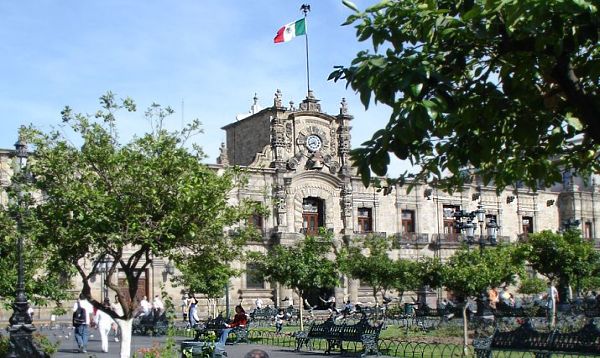Guadalajara, Mexico - To the displeasure of Jalisco’s judiciary, Governor Aristoteles Sandoval vetoed next year’s planned introduction of open court hearings where prosecutors and defense attorneys present their cases before a judge.
Under a mandate from Congress to make the transition to US-style oral trials by 2016, some states in Mexico are already phasing in the new format.
Few Mexicans have much faith in the current flawed justice system, which consists of lawyers submitting written evidence to judges, with no jury present and no verbal testimony from the prosecution or defense. It is generally considered inefficient, lacking in transparency, and open to corruption.
Despite the looming deadline, Sandoval – presumably for financial reasons – decided last month to veto the Criminal Procedure Code, which included a provision for the implementation of oral trials for next year, that was approved by the State Congress in September. The decision is a blow to Chapala, which was in line to become the first municipality in the state to conduct oral trials for minor crimes.
Judicial counselor Jaime Gomez rejected the argument that the state does not have the funds to begin conducting oral trials. Initial implementation in a sole judicial district such as Chapala would not incur any major expense, he noted, inferring that Sandoval’s veto was politically motivated.
Another judicial counselor, Alfonso Partida Caballero, said that the governor’s decision was "worrying" and would position Jalisco’s justice system as one of the most backward in the entire country.
In vetoing the code, Sandoval rejected a proposal that would have seen around $80 million dollars spent on the "final" modernization of the state justice system. Even though this would have accounted for almost half of the judiciary’s draft budget for 2014, Partida said it provides no pretext for Sandoval’s decision.
"Chihuahua, Mexico State, and Morelos are already allocating 100 percent of their resources for oral trials. Nuevo Leon is at 80 percent and so on. This issue has not been taken seriously in Jalisco and the only thing the executive demonstrates is a lack of interest and vision," Partida said.
Luis Carlos Vega, the president of Jalisco’s Supreme Court, defended Sandoval’s decision saying: "I think it’s a very responsible and courageous veto. The governor was brave to say that you must first have the resources and the infrastructure and then you can make adjustments to laws."
Original Story


